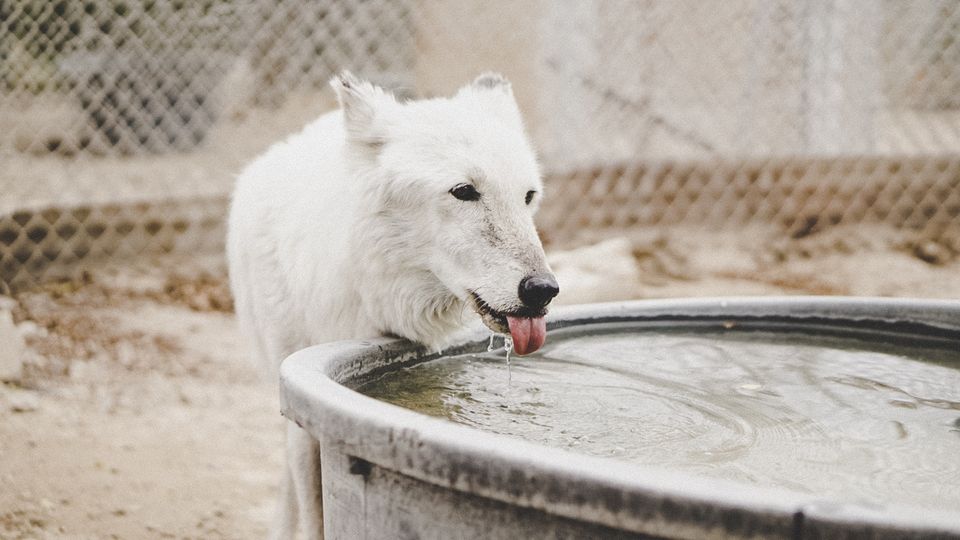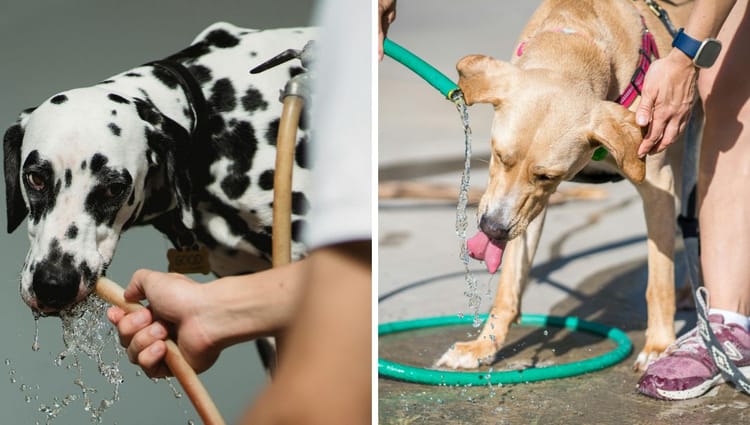How Much Water Should My Dog Drink Daily?

Just like people, dogs need to stay hydrated to maintain good health. But how much water does a dog need? The amount of water your dog drinks depends on a variety of factors, including their size, age, activity level, and even the weather.
In general, most dogs need between 1/2 and 1 ounce of water per pound of body weight each day. So, a 50-pound dog would need between 25 and 50 ounces of water per day.
Signs That Your Dog Is Dehydrated
Dehydration in dogs can lead to serious health problems, so it's important to be able to recognize the signs. Some common signs of dehydration in dogs include:
- Lethargy or weakness
- loss of appetite
- dry nose
- dry mouth
- sunken eyes
If you notice any of these signs in your dog, it's important to take action right away. The best way to treat dehydration is to slowly encourage your dog drink small amounts of water until they are rehydrated. You can also give them ice cubes or ice chips to lick.
Never force your dog to drink large amounts of water from their water bowl at once as this can cause vomiting. If your dog doesn't seem to be improving or is showing other signs of illness, such as fever or diarrhea, it's important to contact your veterinarian right away.
How Much Water Is Too Much?
It's possible for dogs to drink too much water, especially if they are very active or playing in hot weather. Drinking too much water can lead to dilution of electrolytes and sodium in the blood, which can be fatal.
Therefore, it's important not only to know how much water your dog drinks and needs but also to pay attention to how much they are drinking.
If you notice your dog is drinking an excessive amount of water or urinating more frequently than usual, contact your veterinarian right away as this could be a sign of diabetes or another medical condition.
Water In Dogs Food
Water is an important part of a dog's diet. In fact, it's just as important as the food they eat. Water helps to keep your pup hydrated and healthy, and can also help them digest their food more efficiently so keep the water bowl full to keep up their water intake by eating wet food.
How much water should a dog have added to a dog’s food depends on their size and activity level, but generally speaking it should be around 1-2 cups per day.
Adding water to your dog's food can help make the food tastier and more palatable, as well as providing them with essential nutrients. It's best to use filtered or distilled water for your pup since tap water often contains heavy metals and other chemicals that may not be good for your pet.
Proper hydration is essential for your dog's well-being. Make sure to offer them plenty of fresh water throughout the day and monitor how much they are drinking.
If you notice any signs of dehydration or excessive water consumption in your pup, it's important to contact your veterinarian right away. By understanding your dog's individual needs, you can help keep them healthy and happy.
Wet Food For Dogs
In addition to providing water, wet food can be a great way to keep your pup hydrated and your dog drinking water. Unlike dry kibble, canned food contains higher water content which helps keep them hydrated and healthy.
Wet food is also typically higher in proteins, fats, vitamins, and minerals than kibble, making it a nutritious choice for your pup and making sure your healthy dog drinks enough water is important.
Conclusion
Water is essential for all life and includes our dog's water intake! Most dogs need between 1/2 and 1 ounce of water per pound of body weight each day.
Signs that your dog may be dehydrated include lethargy, loss of appetite, dry nose and mouth, sunken eyes and body temperature.
If you think your dog may be dehydrated, the best course of action is to encourage your dog drink small amounts of water until they appear to be back to normal. If you are considered about how much water your dog is drinking and your dog's health then contact your vet. Your pet's water intake can lead to kidney disease and also effect their skin elasticity and other conditions.
However, if you're concerned about how much water should a dog drink or their behavior hasn't improved, contact your veterinarian right away as this could be a sign of a more serious medical condition.

